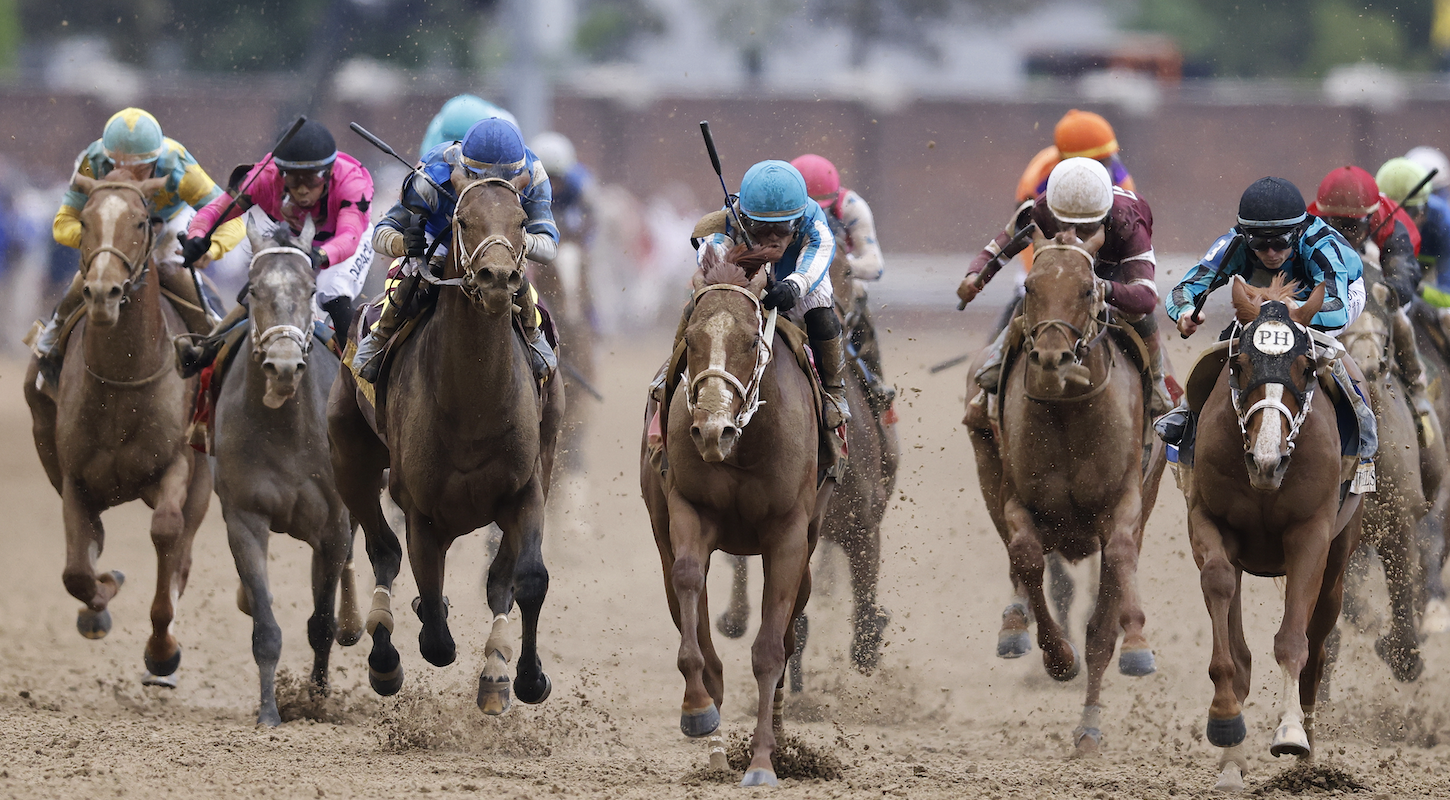Churchill Downs, the home of the Kentucky Derby, will suspend racing indefinitely on June 7, according to a Friday statement by its parent company, Churchill Downs Incorporated. The facility and the horse racing industry more broadly have been under scrutiny since seven horses died in the 10 days leading up to the Derby on May 6, drawing public attention to the sport's animal-welfare hazards. Churchill Downs counts at least 12 horse deaths at the track in the past month. Its statement promises "a top-to-bottom review of all safety and surface protocols and integrity measures in collaboration and consultation with nationwide experts."
As noted by the New York Times's Joe Drape, investigations of the actual racing track at Churchill Downs haven't yet identified anything that would explain the deaths, nearly all of which are known to be instances of horses being euthanized after injury. Given that at least one of those deaths—Code of Kings, a three-year-old gelding who died after apparently panicking in his paddock prior to a race in May—involved no running whatsoever, the track surface makes an unlikely culprit. Churchill Downs has also recently revamped its policies around bonuses and race payouts, to remove any incentive for trainers to get a horse into a race at all costs. That seems a bit closer to the mark.
Prior to the policy changes, trainers had financial incentive to get horses into races regardless of their fitness, and they received at least some payout regardless where their horse finished. Under the new regime, only horses who finish in the top five places receive any payout. Though it seems unimaginably inhumane, the clear implication of those changes is that trainers were putting vulnerable and/or already injured horses into races, rolling the dice that the horse could at least finish before pulling up lame. Splitting the purse among the top five finishers presumably removes some of the margin in doping up a faltering horse and sending it forth to its doom. What it could hope to do about the sport evidently being riddled with the type of people who would do that—well, I guess I'm not super optimistic on the subject.
In its statement, Churchill Downs says that following this weekend's action, races would relocate to Ellis Park, another track owned by the same parent company. Nothing in particular about spending an extra month at Ellis Park—where, as Drape notes, the races already were scheduled to go after July 3—seems likely to remove or ameliorate the sport's deeper problems: principally, rampant doping, and "centuries of breeding for speed that have led to an animal built like a barrel on toothpicks," as our own Barry Petchesky put it back in May. Horse racing's authorities know this, however sincerely any of them may hope a thorough investigation uncovers some evil but removable curse on Churchill Downs and renders it safe for horses.
The bleak but infinitely likelier reality is that nothing particular to that place other than the fact that horse racing happens there explains its rash of horse deaths. What they're principally aiming to exorcise from the facility by moving the races away isn't danger to horses, but the scrutiny that comes with these deaths happening at the sport's best-known venue. Racing's hazards and inhumanities, unlike the general public's attention, will follow it wherever it goes.






